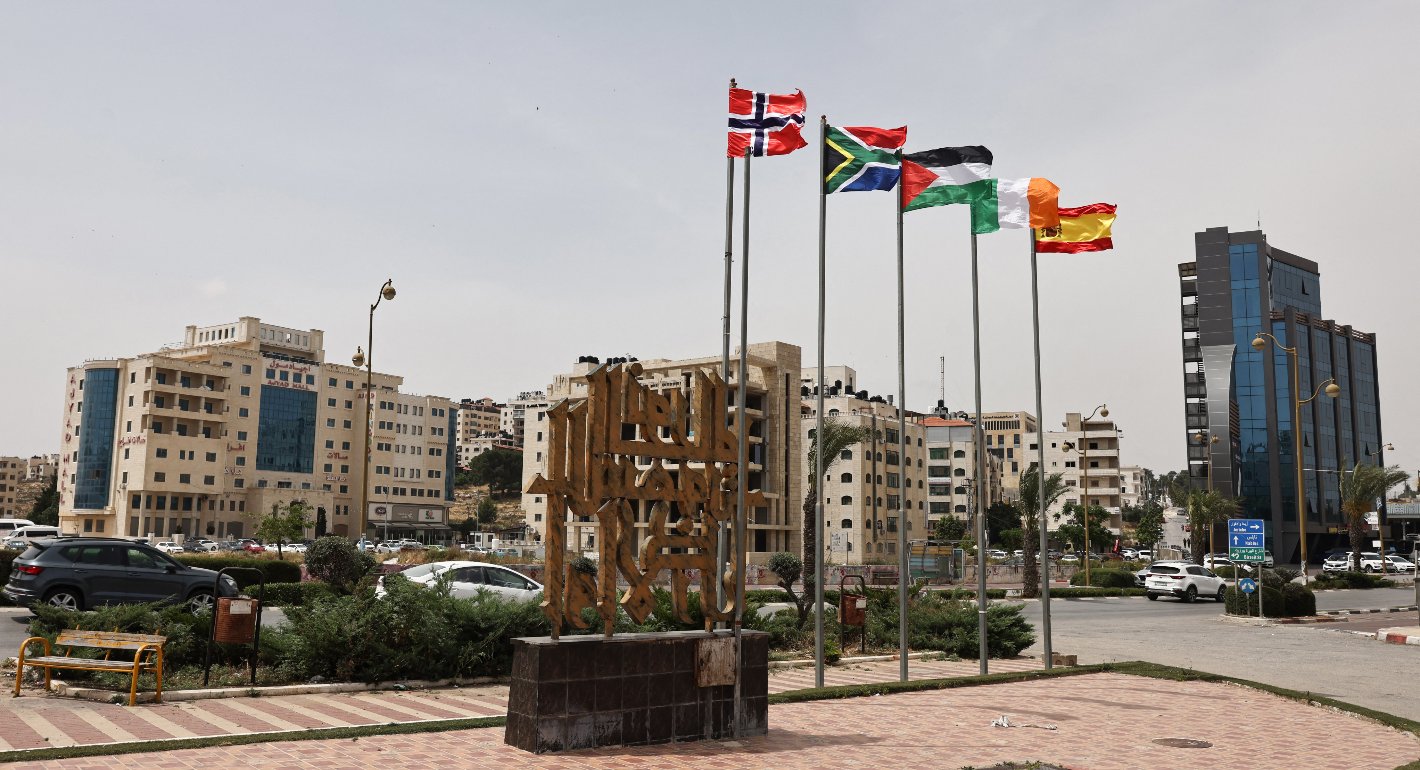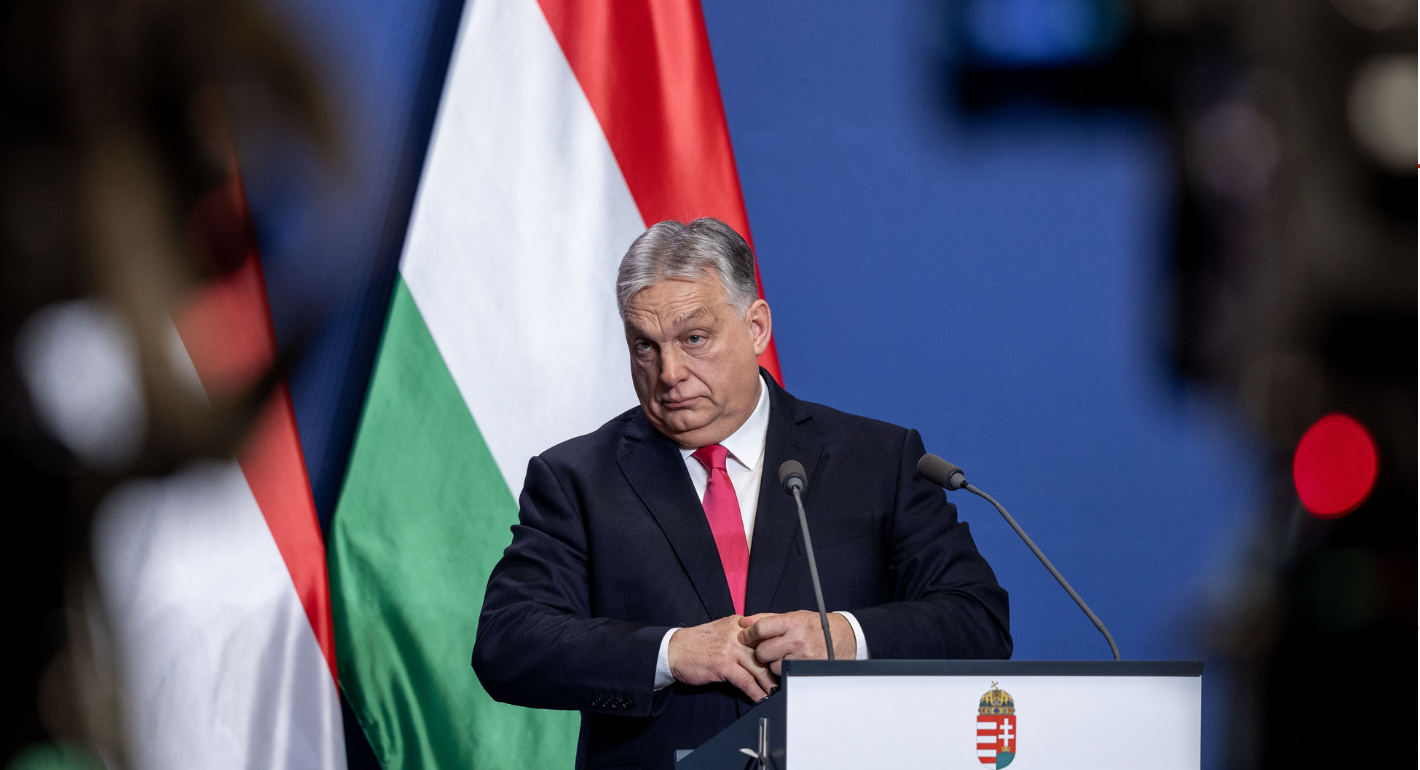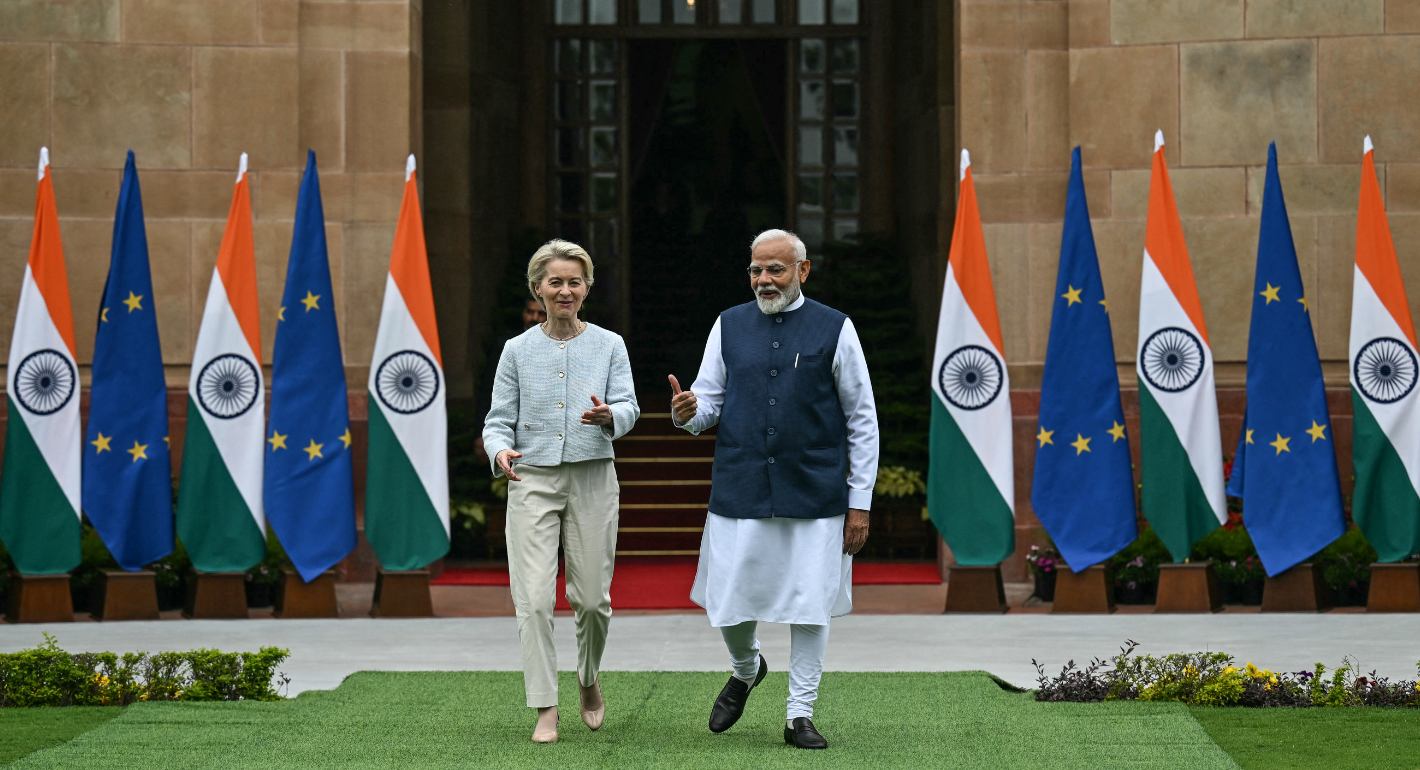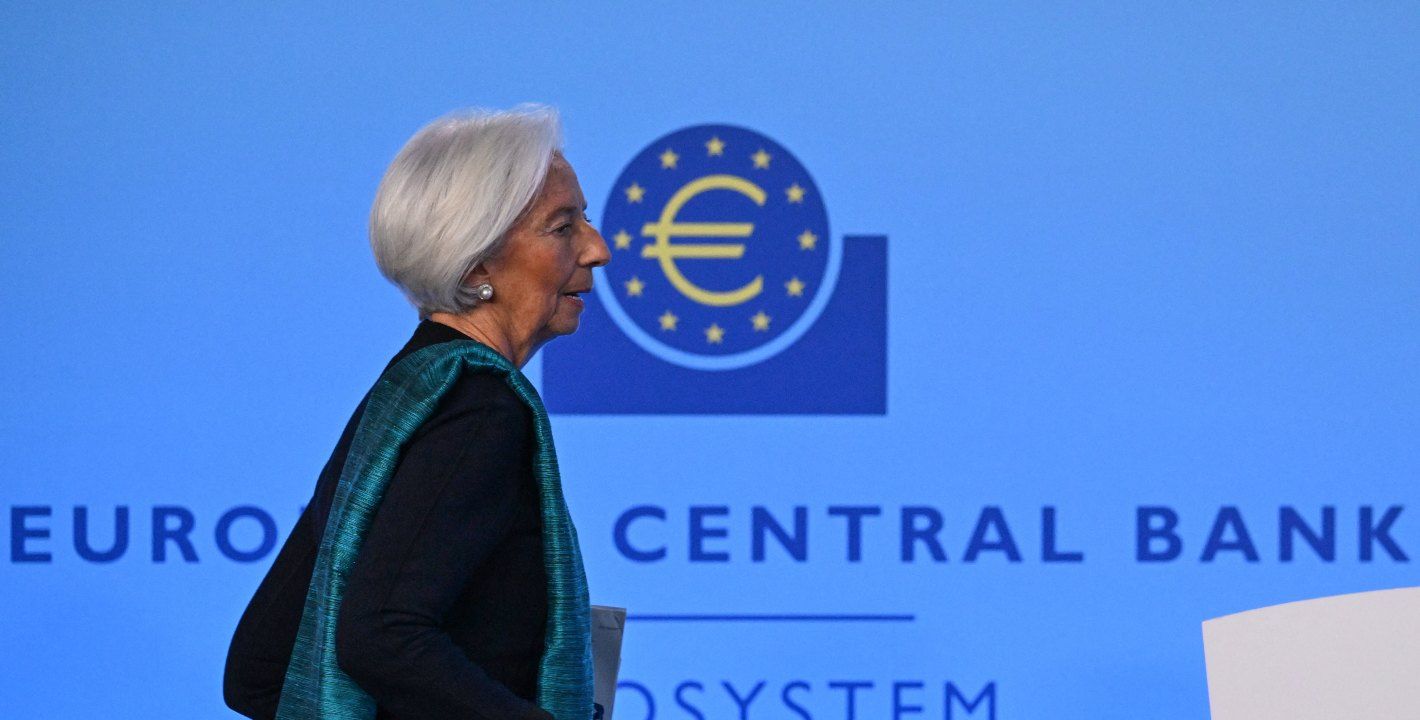Muriel Asseburg
Senior fellow in the Africa and Middle East division of the German Institute for International and Security Affairs (SWP)
The atrocities committed on October 7 and in the course of the war in Gaza call for a bold move by the international community to stop the downward spiral of occupation, blockade, terrorism, retaliation, and mutual dehumanization.
In that endeavor, the recognition of a Palestinian state is one important element in the international toolbox. Recognition serves to reassert the Palestinian right to self-determination, the two-state approach, and a conflict settlement based on the 1967 borders.
Already in March 1999, the European Council in Berlin had emphasized that it “is convinced that the creation of a democratic, viable and peaceful sovereign Palestinian State … would be the best guarantee of Israel’s security and Israel’s acceptance as an equal partner in the region.” And it declared at the time “its readiness to consider the recognition of a Palestinian State in due course.”
Yet, in order for recognition to be transformational, it will have to be a building block in a broader process of conflict settlement coordinated with the United States and Arab states—as discussed at the EU foreign ministers’ meeting this week.
It will also need to be accompanied by measures that prevent the collapse of the Palestinian Authority and strengthen Palestinian governance through genuine and structural reform, including by reestablishing a Palestinian government based on a division of powers and paving the way for meaningful elections.
Nathan J. Brown
Professor of political science and international affairs at George Washington University
Across an otherwise unbridgeable political spectrum, most observers now can see how deeply the single state of Israel controls all the area between the Mediterranean Sea and the Jordan River, governing it on behalf of one national group. For a quarter-century, international intonations about a “two-state solution” and “two states for two peoples” sought to obscure that reality.
But formal recognition of a “state of Palestine” is one of the few expressions of the forlorn hope of a two-state solution that is actually constructive; recognizing Palestine diplomatically reveals more than it obscures.
First, the step has already forced current Israeli leaders to take off the mask and openly declare implacable hostility to a two-state solution and explicitly endorse the one-state reality. And in that way, recognition of Palestine no longer shields Israel from the consequences of de facto annexation and creeping apartheid.
Second, dealing with Palestine as a state, however aspirational, affirms that Palestinians have national—not just individual—rights and undermines an Israeli—and sometimes international—strategy of designating pliable “leaders” for them.
Finally—and most importantly—it undermines the pernicious American insistence on diplomacy only through direct negotiations that avoids any effective reference to international law, human rights, and multilateral structures.
Caroline de Gruyter
European affairs correspondent at NRC Handelsblad
Yes, it should. Palestine should have been recognized as a state long ago. Some argue it should have been recognized in parallel with Israel in 1947, on the basis of the UN partition plan. Now, after seventy-seven years of tragedy and bloodshed, it is too little too late.
Throughout all these years, the efforts by outsiders to bring the conflict to an end were based on facts on the ground imposed by force, rather than on justice. On the basis of agreements that were never implemented in good faith by the other side, the Palestinians were left with ever-shrinking and unmanageable shreds of land, leading to growing frustration and anger. It is high time for the outsiders to do something consistent with the rules-based world order they want to preserve.
International law, just like domestic law, keeps the powerful in check and protects the underdog. For decades, it has been the most effective ally of the Palestinians. Palestine needs now to be made into a full subject of international law.
In the current circumstances, recognition would be largely symbolic. Still, it must be done. Symbols matter when they are the only things you have.
Martin Ehl
Chief analyst at Hospodářské Noviny
No, this is not the right time. For me, it is an interesting comparison with Kosovo, which I personally witnessed being born out of decades of resistance and ethnic cleansing. Even with NATO’s backing, it was hard for some countries to recognize it as a state, mostly for domestic political reasons.
At the time of its declaration of independence, Kosovo was in a more advanced stage of statehood development than Palestine today. Let’s leave it to the national governments and maybe ask the Spanish government why it is not recognizing Kosovo but giving a yes to Palestine.
By recognizing a Palestinian state, the EU also risks supporting the right to existence of a couple of terrorist organizations associated with the Palestinian cause as well as widespread corruption within the ranks of the Palestinian Authority as well as Hamas.
There is rightful criticism of how the Israeli government has been handling the war after the October 7 attacks. Sometimes, uncritical stances toward the Israeli way of waging war—like those expressed by some members of the Czech government, for example—do not help the cause.
Debates on the recognition by the EU would be an unnecessary expression of disunity within the bloc. It could help Russian and Chinese propaganda in these tense times when the EU should be providing as united a stance as possible.
Kawa Hassan
Nonresident fellow in the Middle East and North Africa program at The Stimson Center
The recognition of a Palestinian state by Spain, Norway, and Ireland is crucial symbolic support for the Palestinians. This diplomatic move may encourage other European states such as Slovenia, Malta, and Belgium to follow suit.
To be sure, symbolism matters, but it remains just that if it is not part of a strategic vision and a practical, implementable roadmap to realize a viable Palestinian state given the United States’ reluctance to exert real pressure on Israel to agree to a ceasefire and engage in meaningful negotiations to end the war.
Sadly, in the short term, this recognition will not change the catastrophic humanitarian situation on the ground in Gaza and the less covered settlers’ violence in the West Bank. Yet the unexpected renewed global attention to the Palestinian issue and the Israeli-Palestinian conflict provides a unique opportunity to think out of the box and make bold diplomatic decisions that may generate new momentum to impose a two-state solution on both sides of the conflict.
The horrific Hamas attack of October 7 and the unprecedented violent Israeli response are political game changers in the decades-long conflict. Regardless of what happens next, there will be no going back to the October 6 status quo.
Shada Islam
Managing director of the New Horizons project
The EU’s priority should be to uphold international law and comply with recent rulings of the International Court of Justice and the International Criminal Court. This means a stop to supplying weapons to Israel as it continues its brutal offensive against Gaza following the October 7 terror attack by Hamas. It means suspending the EU-Israel agreement over human rights violations.
Recognition of a Palestinian state by the EU collectively would also be important for several interconnected reasons.
First, it would inject some much-needed life into the practically moribund search for a two-state solution that would allow Israel and a Palestinian state to live side by side. This won’t happen overnight given Israel’s opposition but it would lay an important marker for the future.
Second, it would show that the EU still has some claims to impartiality despite its collective failure to call out Israel for violations of international humanitarian law in the face of famine and hunger in Gaza.
Third, such a collective move to recognize Palestinian statehood would go some way in repairing the bloc’s deeply wounded reputation, role, and influence in the Middle East and the wider Global South, especially among civil society actors who are quite frankly appalled at the EU’s pro-Israel stance.
Finally, it would of course have been much more politically powerful if the recognition had come from all twenty-seven EU member states—but it is significant that on issues of such serious moral and geopolitical significance, national EU governments take decisions based on their own values and interests regardless of what their EU partners say and irrespective of the stance taken by the United States.
Bruno Maçães
Author and foreign correspondent for the New Statesman
Recognizing a state without granting it the powers of state is a highly ineffective solution. For example, I recently crossed the border between Jordan and the West Bank. The people checking my bags were Israeli soldiers. It’s this non-existent state that Ireland, Spain, and Norway just recognized.
Normally I would worry recognition could create the perception everything is well when nothing in fact is. The present moment, however, is exceptional. There is a real danger that the Palestinian dream will be killed forever. Recognition would help keep it alive. Also, the presence of more diplomats in the West Bank and greater diplomatic ties would increase scrutiny and accountability for Israeli actions. Nothing is more urgent at the present moment.
For these two reasons I strongly support recognition by as many member states as possible and, urgently, by the EU itself.
Aaron David Miller
Senior fellow in the American Statecraft Program at the Carnegie Endowment for International Peace
Assuming the EU could muster a consensus, what is the purpose of early EU recognition?
If the goal is to boost Palestinian morale then put the EU on record that a two-state solution is the only solution to the Israeli-Palestinian conflict; compensate for the EU’s inability to play any meaningful role in trying to defuse or broker an end to the Israel-Hamas war and alleviate Palestinian suffering; and satisfy domestic public opinion that the EU and its member states are somehow engaged in the push for a settlement. These might have some modest value.
Would early recognition of a virtual Palestinian state make a significant and meaningful contribution to the creation of a real one? Probably not.
The EU as an organization has never been—and is not now—a major player in Arab-Israeli or Israeli-Palestinian negotiations. Unilateral recognition of a Palestinian state, especially if the EU pushed for the establishment of an embassy or consulate and tacked toward the Palestinian position on borders and Jerusalem, would certainly boost its influence with Palestinians. But at the same time, it would end whatever influence the EU had with Israel in any post-conflict peace process.
Indeed, even though the EU didn’t intend recognition to be an incentive or reward for Hamas, that’s precisely how many Israelis might read it. Bottom line: EU recognition now wouldn’t make much of a difference one way or another.
Marwan Muasher
Vice president for studies at the Carnegie Endowment for International Peace
The answer is an unequivocal yes. It should have been done much earlier.
The whole world has supported the principle of a two-state solution, a Palestinian state and an Israeli one, as the logical way to end the Arab-Israeli conflict. By not coupling this support with any credible, time-limited plan to implement it, however, the result has been to give Israel time to build more settlements in the occupied territories and render this two-state solution impossible.
In an interview with CNBC a few days ago, Israeli Prime Minister Benjamin Netanyahu claimed that accepting a two-state solution is “a reward to terrorism.” What he has not said is that a continuation of the occupation has resulted in a minority of Israeli Jews ruling over a majority of Palestinian Arabs through separate legal systems. That is the legal definition of apartheid, and that is what the world will have to deal with if a credible two-state solution does not materialize in the near future.
The recognition of a Palestinian state by the EU today would help set a marker that will be more difficult to reverse and send a clear message to Israel that an apartheid-like system will not be tolerated.
John O’Brennan
Professor of European politics and Jean Monnet Chair in European Integration at Maynooth University
The EU has been paralyzed over Gaza because of differences among member states. Ireland, Spain, and Norway were just the latest of over 140 states that have formally recognized Palestine. But recognition seems more symbolic than substantive.
The EU should cancel or suspend its association agreement with Israel, at the very least. But it cannot even do that. It is behaving like a geopolitical eunuch. Nothing will change until the EU moves foreign policy decisionmaking to Qualified Majority Voting. Until then, we will continue screaming into the void.
Marc Pierini
Senior fellow at Carnegie Europe
In view of the horrendous war between Israel’s Netanyahu government and the Hamas movement in Gaza, the recognition of a Palestinian State has gained some traction in the past few weeks. It is highly doubtful, however, that such a bold move would garner unanimity in the European Council anytime soon.
The key evidence is that at this point in time, the inner dynamics of, respectively, Israeli and Palestinian politics inevitably lead to the prolongation of an armed confrontation out of the reach of foreign political forces. Going forward, the prospect is a never-ending war of attrition against the Palestinian people, both in Gaza, where families have nowhere to go, and in the West Bank, where Israeli forces support the violence of Jewish settlers against Palestinians.
In such a desperate situation, an EU recognition of a Palestinian state now—even if the conditions for its establishment or the parameters of a negotiation toward its creation are absent—could create enough of a jolt among the international community to show that the long-discussed prospect of a two-state solution remains the only way forward nearly seventy-seven years after the United Nations’ Resolution 181 was adopted.
Carsten Søndergaard
Former Danish ambassador to Russia, Ireland, NATO, Germany, and Turkey
The short answer is “no.”
Recognition of a state is a very important instrument. It can only be used once. It is even more important when we speak of recognizing a state that does not really exist as such.
The recognition of a Palestinian state has been a topic of debate since the Oslo Accords. For the EU to do it, it should be done after careful consideration with respect for the history, principles, and process. A recognition would make sense if both parties respected the principle of a two-state solution. Frankly, it does not seem to be the case today.
Furthermore, the purpose must be not only to influence both parties of the conflict but also to increase the credibility of EU foreign policy. An EU decision should be more than just the sum of decisions of the member states.
All politics is local. That may explain why some countries recently decided to recognize a Palestinian state. However, it begs the question: What did they get out of it? Why didn’t they insist on the release of some of the hostages? Why only pressure Israel and not also Hamas? Nevertheless, more countries might follow. But the impact remains to be seen.
Paul Taylor
Senior visiting fellow at the European Policy Centre
There are at least one hundred more useful things the EU could do to help the Palestinians achieve statehood than the hollow gesture of recognition of a non-existent state, which is more about domestic politics than increasing Palestinians’ prospects of getting a state.
The most practical would be to work with Arab states and the United States on a plan for the governance of Gaza after the war. The EU could participate in a transitional international peacekeeping and border-control presence. It could provide training for future Palestinian administrators and politicians. It could help to rehabilitate United Nations Relief and Works Agency for Palestine Refugees.
Those who see the priority as holding Israel to account for excessive use of force in Gaza want to stop selling arms, suspend the EU-Israel Association Agreement and take individual sanctions against Israel leaders defying the ruling of the International Court of Justice.
However, the EU should understand that some actions are mutually exclusive. It cannot simultaneously put Benjamin Netanyahu on a sanctions list and expect to be accepted by Israel as a partner in helping Palestinian state-building. The EU should prefer practical steps to gesture politics if it wants to be taken seriously and contribute to solutions in the Middle East.
Pierre Vimont
Senior fellow at Carnegie Europe
The recognition of a Palestinian state has always been considered an inescapable reality for those yet undecided European nations. But the real issue is to know when such a step could make a difference. From that perspective, one may wonder whether recognizing today a Palestinian state will deliver peace or rather antagonize the two sides.
For the Palestinian Authority, what is needed in current circumstances is improved governance through clarity. A formal recognition will only add confusion over what a Palestinian state really means. With its own borders in the West Bank openly contested by Israeli settlers and the future administration of Gaza still undecided, today any Palestinian entity needs clear guidance rather than public displays of division from the international community.
As for Israel, the feeling of being left alone risks stiffening the whole nation in its conviction that the military option is the only solution. Any hope on the European side of imposing upon Israel the two-state solution through a purely legal decision will not materialize.
Europe’s final recognition should come naturally, in the course of a genuine peace process, and hopefully in unison. Today, in the midst of an open conflict, it is more of a symbolic gesture than a decisive move.









